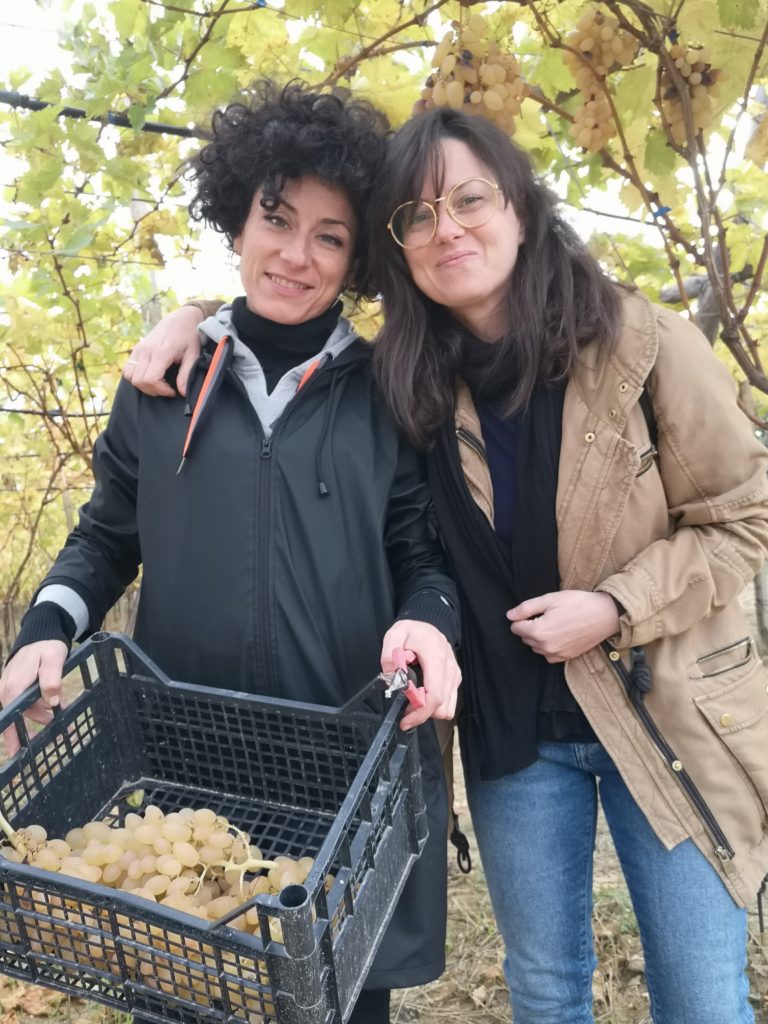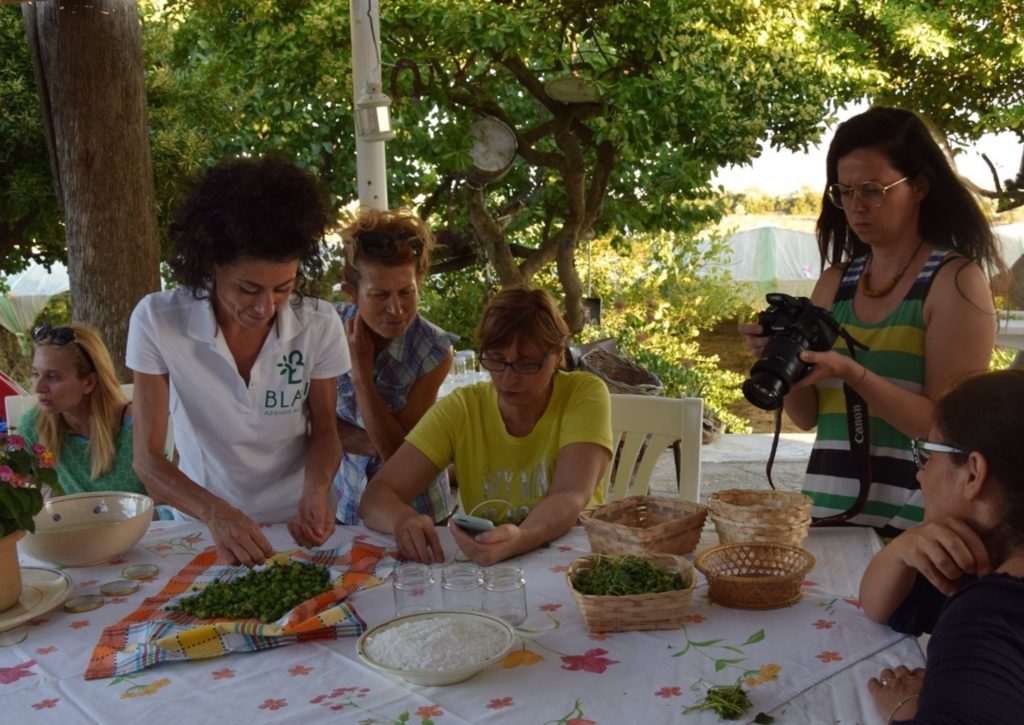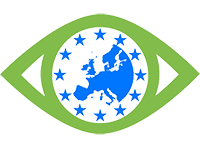
New Entrepreneur (NE)
Name & surname: Giuseppina Vampo
Country: Belgium
Age: 38 years
Sector of activity: Sustainable tourism
Have you already started your business? No.
Name of business: Be-Puglia
Host Entrepreneur (HE)
Name & surname: Emilia Blasi
Country: Italy
Sector of activity: Organic agriculture
Experience in running a business: 6 years
Name of business: L’uva di Emilia azienda agricola Blasi Giuseppe
What is your business? Production of table grapes and oil with natural methods according to organic and regenerative farming techniques. Organization of visits and events at the vineyards and olive groves owned by the company.
Period of exchange: 11/11/2019 – 10/04/2020 and 11/05/2020 – 12/06/2020
Duration of exchange: 6 months
How did Giuseppina adapt to the challenges of Covid-19 in order to meet the objectives of her exchange and to achieve successful outcomes?
Why did you decide to join the program and what business are you planning to start?
Last year, I decided to participate in the Erasmus for Young Entrepreneurs Program because I wanted to start creating my own business. Before a friend of mine told me about the EYE Program, I didn’t know that the EU was giving people this great opportunity to go abroad and learn new competencies within a concrete working context.
My entrepreneurial idea was the creation of a web platform including Apulian structures and initiatives related to sustainable tourism. I knew that the first step in order to achieve this objective was to connect with a regional network, a group of people working together for the promotion of a territory.
You started the exchange in 2019 and were not expecting to develop it suffering from the COVID crisis. In which way did this crisis affect your exchange and the working plan you previously established with your host entrepreneur?
So, once my application for participating in the EYE Program was approved, I decided to go to Apulia for six months in order to acquire new skills that would enable me to create and manage my own business in the sustainable tourism sector. I started the program in the middle of November, so luckily, I had the time to build a very good relationship (both personal and professional) with my Host before the COVID crisis stopped almost everything.
Only two weeks before the lockdown, thanks to my Host’s contacts and collaborations, I got in touch with a brand-new network of entrepreneurs (which the Host is part of), which was established to offer sustainable tourism services. Through the interactions between all the companies belonging to the network, the goal is to create experiential itineraries through the culture and traditions typical of the territory. So, I started to align my project to the entrepreneurial network’s mission and I concretely started to plan tourist itineraries between Taranto and Brindisi provinces. At first, I focused on the planning of the international communication plan of the network, then, due to the Covid restrictions, I implemented the local knowledge of the territory and also my digital skills in webinars and video training.
During this period, the relationship between me and my host was based on skype calls and e-mails for updates related to places and itineraries we wanted to propose to the entrepreneurial network and to add to our tour packages. We also put into practice the digital training we attended in the previous weeks, experimenting with the various features and tools of social media in order to give more visibility to the project and to help identify its target.
During the lockdown, I tried to figure out the new socio-economic situation, which would occur after the end of the restrictions, so I adapted the tourist experiences I prepared to a different kind of clients, more “locals” than foreigners – like everybody else, we’re talking about “proximity tourism”.
Unfortunately, the tourist sector has been one of the most affected by the COVID crisis; we all know about the dramatic collapse of reservations for flights and stays. Nevertheless, all the work I did remotely during the lockdown together with my host and the rest of the network, has been very useful since the governmental restrictions have been slightly reduced.
Between May and June, thanks to the favorable weather and the open-air locations made available by the Host, we had the possibility to meet the entrepreneurs who are part of the network, in absolutely secure and safe conditions. All together we agreed on the tourist itineraries that were in line with the new after-COVID rules of tourist reception.
Thankfully we didn’t have to dramatically change the original tourist proposals, since focusing the entire project on sustainability, nature, and the first-hand experience of local traditions, the routes were originally designed for small groups of people and almost always outdoor in large and open spaces in order to encourage visitors to come and enjoy the territory the way it is.
Mid-June, I finished my Erasmus exchange, but I had the chance to continue to collaborate with the tourist network by writing and editing content, making researches and reports, and effectively making decisions for the future of this beautiful new reality that has actually become my new job.
Is there any lesson learned or best practice that you develop during this period?
Flexibility has surely been the best practice I learned during this period: even when facing the most frightening and unexpected events, in order to go ahead and don’t lose all the work and efforts made until that point, the only thing to do in my opinion is ADAPT our objectives and skills to the new situation, without losing positivity and confidence in the future.
Despite the big challenge of the COVID crisis throughout my EYE experience, after the Erasmus exchange, I am now able to set the steps needed to build a little company and I am more confident with bureaucracy. Thanks to the collaboration with the entrepreneurial network, I learned how to create an association of more companies and, most importantly, I got to know how important and effective the cooperation among companies from different product/services sectors is.
Also, I developed my digital skills in the tourist field, I learned a lot about marketing management, and I strengthened my competencies concerning work organization from home (follow planning, share practices, collaborate with people, etc.) – actually, I now know that (almost) everything is possible (from a management point of view) when working from home.
Which objectives did you still reach despite Covid and which other objectives were unfortunately not met?
The biggest achievement of my Erasmus is surely the collaboration with this brand-new sustainable tourist company that is giving me the opportunity to continue following its project, developing new competencies every day, and discovering the wonderful South of Italy.
The only objective that I didn’t meet regarded the development of a solid network of contacts around Europe (especially Belgium, France, Nederland) to help foster the internationalization of my new business. I had wished to implement this objective just in the months when Covid arrived, but it was quite clear since the beginning of the crisis that this year international tourism would significantly reduce, so I adapted the goal to establishing local and national contacts. So, this objective, as it has been set before the crisis, has only been postponed 😉

